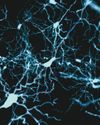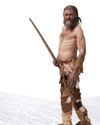WHY STUDY BUGS IN US . . . IN SPACE?

Just getting into space is an ordeal. It starts with the acceleration and jarring vibration of a rocket launch. Minutes later, astronauts float weightlessly about 250 miles (400 km) above the Earth’s surface in low Earth orbit. Once in space, every minute is scheduled. The constant demands on their attention can stress out astronauts. Their living space is cramped and not at all private. And they are stuck with the same crew for months. Also, the air smells weird. Stress changes body functions and invites illness. Lots of time and money go into selecting and training astronauts, so protecting their health is important to NASA. The last thing anyone wants is for an astronaut to get sick in space.
MICROBES IN SPACE
Esta historia es de la edición January 2018 de Muse Science Magazine for Kids.
Comience su prueba gratuita de Magzter GOLD de 7 días para acceder a miles de historias premium seleccionadas y a más de 9,000 revistas y periódicos.
Ya eres suscriptor ? Conectar
Esta historia es de la edición January 2018 de Muse Science Magazine for Kids.
Comience su prueba gratuita de Magzter GOLD de 7 días para acceder a miles de historias premium seleccionadas y a más de 9,000 revistas y periódicos.
Ya eres suscriptor? Conectar

A 12-Year-Old Girl's Election Sticker Is a Winner
VOTING IS A FUNDAMENTAL FREEDOM FOR AMERICANS, A MEANS OF DOING ONE'S CIVIC DUTY AND A WAY AN INDIVIDUAL CAN EXPRESS THEIR VOICE. In 1971, the United States lowered its voting age to 18. But that doesn't mean kids and teens under 18 can't participate in elections in various ways.

If everything the human brain does is basically sets of electrical impulses, how exactly does that translate into a state of mind?
You're not the only one asking this question. Every neuroscientist in the world is wondering the exact same thing, says Zach Mainen

EARTH'S TINIEST BUILDERS
THE HIDDEN WORLD OF MICROBES IN THE EARTH'S CRUST

MUMMIES SPEAK
ABOUT MICROBES, MIGRATION, AND MORE

GOING WITH YOUR GUT
HOW DO MICROBES AFFECT OUR HEALTH? LET'S COUNT THE WAYS...

BUG Detective
A burglar sneaks into a house on a quiet street in New York City. He walks through the house, touching countertops and door handles. Finally, he steals a single card from a full deck. Then he leaves.

Little Creatures Among Us THE MANY MICROBES IN OUR DAILY LIVES
When you think you're alone, you're actually not. In the ground, the air, your room, and even your body are Strillions and trillions of creatures so tiny you can't see them.

A Mars Rock Found With Leopard Spots Could Be a Sign of Ancient Life
IN JULY, NASA'S PERSEVERANCE ROVER CAME ACROSS A SPOTTED ROCK IN WHAT WAS ONCE A RIVERBED IN THE JEZERO CRATER ON MARS.

Para Athlete Uses Exoskeleton Suit to Carry the Olympic Torch
In July, a 36-year-old French tennis para athlete, Kevin Piette, got a chance to participate in this summer’s Olympic torch relay without using a wheelchair.

Ancient Egyptians May Have Used a Water System to Lift Stones to Build Pyramid
HOW ANCIENT EGYPTIANS BUILT THE MASSIVE PYRAMIDS IN EGYPT MORE THAN 4,000 YEARS AGO HAS LONG BEEN A TOPIC OF WONDER AND DEBATE.